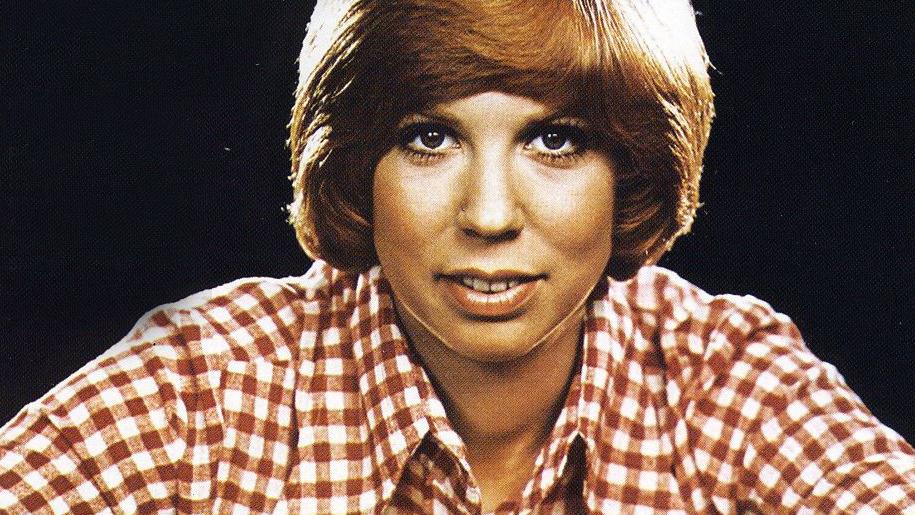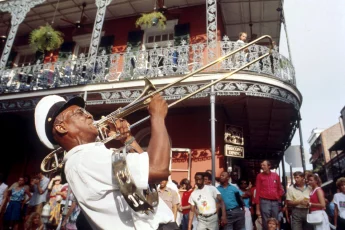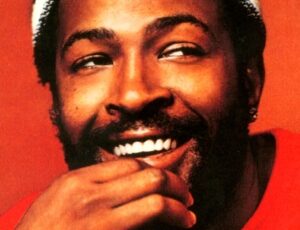Long time visitors to So Much Great Music will recall the popular guest blogs on Don Henley and Rod Stewart by my friend and music lyrics scholar Shep Cummings. Now, please welcome him back for another entry on one of his all-time favorite topics. Here’s Shep!
For a brief and debatably shining moment in pop music history the genre of the “story song” gained notoriety in the early 1970s. During a sub-era in which disco, punk and new wave were still years away and as millions of baby boomer teenagers tuned in weekly to Casey Kasem’s American Top 40, these tunes – while far from Hall of Fame material – still hold a sentimental place in the hearts of many who grew up during this somewhat confusing period of our nation’s history.
While Vietnam and Watergate dominated the headlines, these often cheesy but still mostly catchy songs managed to create a welcome diversion from some real problems going on in the world. Moreover, with plots embedded within their lyrics clearly defining a beginning, middle and end, they have, for the most part, stood the test of time – with criteria number one of such a test being that they are remembered by pretty much everyone who ever heard them. Which, though perhaps lacking in musical genius or intensity, means at the very least they told some pretty memorable stories.
So in chronological order, here’s your playlist of the best ‘70’s story songs ever.
- Indiana Wants Me – R. Dean Taylor (1970)
Kicking off the era Mr. Taylor laid out to listeners the story of a Hoosier state man on the run, unable to return home, because of his actions against someone who made the ill-fated decision to talk a little too much smack about his girl. “If a man ever needed dying he did / No one had the right to say what he said about you.” The song does not end happily with Taylor’s description “Red lights are flashin’ around me / Yeah, love, it looks like they found me” and echoes of “This is the police, you are surrounded, give yourself up.” Dramatic closing words for pre-teens who bought the 45 back then.
- Gypsies, Tramps and Thieves – Cher (1971)
No jukebox tune ever told the cycle of life quite like this one, which was Cher’s first chart topping hit without Sonny. It took at least a few times listening for most to pick up on the subtle but major wording differences between “I was born” and “She was born” as well as “Papa” and “Grandpa” in the first and last verses. For elementary school-aged kids the lyrics were just adult enough to provide a real edge to this young lady’s cautionary tale as in “But every night all the men would come around / And lay their money down” and “Three months later I’m a gal in trouble / And I haven’t seen him for a while.” I seem to recall more than a parent or two turning their head when their daughters gleefully sang those lyrics around the house.
- Brandy (You’re a Fine Girl) – Looking Glass (1972)
This tune has been forever etched into happy karaoke’s Mount Rushmore, though if you listen closely it’s actually a pretty sad story. “Brandy, you’re a fine girl / What a good wife you would be” is the continuous refrain everyone cheerfully remembers, but the fate of this beautiful waitress is cast in melancholy by lyrics such as “At night when the bars close down / Brandy walks through a silent town / And loves a man who’s not around.” I always thought this was a terrible message for young woman: if your crush loves the ocean more than he loves you, then stay in love from another continent away and get other guys you don’t like drunk for the rest of your life? Sorry, not such a joyful topic for a sing-along in my book. But of course, everyone still loves it.
- You Don’t Mess Around with Jim – Jim Croce (1972)
First let me say it was a real tough call deciding between this tune and Jim Croce’s follow up Bad, Bad Leroy Brown which he released a year later and is better remembered. However since they both tell sort of the same story, I’ll go with the original. This is another cautionary tale, and about the misfortunes of hanging out in pool halls and “hustlin’ people strange to you.” Plus how can you not like the underdog Willie McCoy, aka Slim, taking on “stronger than a country hoss“ Big Jim Walker. “Last week he took all my money / And it may sound funny / But I come to get my money back.” Finally, any song able to combine Superman, spitting, and the Lone Ranger in the same line has to make the list.
- Tie a Yellow Ribbon Round the Old Oak Tree – Tony Orlando and Dawn (1973)
Reportedly based on a true account, as witnessed by a group of college students returning from spring break, this is unquestionably the corrective rehabilitation song of all time. I mean how can you beat the opening line “I’m coming home, I’ve done my time.” So, what did this guy do time for? Armed robbery, assault and battery, something worse? Doesn’t matter because everybody on the bus is rooting for that yellow ribbon to be there. Sung in first person, one of the most revealing lines pertains to speculation in the event the yellow ribbon is a no-show: “I’ll stay on the bus / Forget about us / Put the blame on me.” (Who else could this guy put the blame on?) This song was the number one selling single for the year of 1973, obviously indicating that despite his indeterminate checkered past public sentiment favored the yellow ribbon being tied.
- The Night the Lights Went Out in Georgia – Vicki Lawrence (1973)
Now we’re talking. In my opinion this is the greatest story song of all time. Woven within slightly more than three-and-a-half minutes is a double murder plot more elaborate than ninety-nine percent of the made for TV movies of the same year. Sung by a then-Carol Burnett lookalike and future Hannah Montana grandmother, this one and only hit of Vicki Lawrence’s recording career is about as memorable as they come. Funny how many people, even all these years later, still don’t know what happened in this song (just ask Nice Guy Eddie from Reservoir Dogs). I can still remember the first time I heard it, sung by Ms. Lawrence on the Carol Burnett show, and the chills it gave me from the final line “See, little sister don’t miss when she aims her gun.” Message received and understood: don’t mess around, and do not mess with little sister.
- Midnight Train to Georgia – Gladys Knight and the Pips (1973)
Well, I guess there’s more than one good story song with Georgia in the title. The original was written and recorded under a much slower tempo by Jim Weatherly as Midnight Plane to Houston and I think we are all grateful he changed the title before sending it on to Ms. Knight, who happened to have grown up in Atlanta. Personally, I was always partial to this song and its ‘love conquers all‘ backdrop, complete with periodic doses of both loyalty and reality. “L.A. proved too much for the man” and “A superstar, but he didn’t get far” are comforted with “I’d rather live in his world / Than live without him in mine.” Admittedly in today’s world the story would have probably been written differently, as in the man staying in Hollywood and supporting his future wife’s career, but that’s neither here nor there for those who love this song and there are many. The final line is a great one: “My world, his world / My man, his girl.”
- Billy Don’t be a Hero – Bo Donaldson and the Heywoods (1974)
Perhaps the most widely remembered of all story songs is this tragic tale of a fallen Civil War soldier and his lovely fiancée who foresaw danger in his future. So, was this song inspired by the simple contrived fate of the characters or was it a thinly veiled metaphor for the anti-war movement of the Vietnam era still a year or so away from its resolution? You be the judge. Billy disregards his fiancée’s words “to keep his head low” and “not be a fool with your life,” advice that surely would have had him court marshaled for desertion in the heat of battle…but hey that’s a minor detail in all this. Anyway, Billy tries to save his fellow soldier’s lives and dies in the process. And when informed of his heroism by letter his fiancée chucks the missive in the trash. Catchy tune that sold a lot of records though.
- The Night Chicago Died – Paper Lace (1974)
Why let facts get in the way of a good story song, as in this one about a completely fictitious account of a scheduled rumble between Al Capone’s mob and Chicago’s forces of the law. The narrator repeatedly reminds us throughout the song “I heard my Mama cry / I heard her pray the night Chicago died” while his father and fellow cops are fighting Capone’s men in the street (again, this never happened) before “The last of the hoodlum gang / Had surrendered up or died.” The song reaches its crescendo when we listen to about five seconds of “the clock upon the wall” – which I always thought was the coolest part of the song. I was thirteen when this song came out, and must say that despite its historical inaccuracy it was my favorite tune of that entire year.
- Angie Baby – Helen Reddy (1974)
The final tune of this playlist was a close call between this choice, Harry Chapin’s Cat’s in the Cradle and Michael Martin Murphey’s Wildfire. I guess maybe in the end I didn’t want to conclude with a fractured father-son relationship or the ghost of a horse. Not to say my Helen Reddy selection here isn’t quite disturbing in its own right, as we hear about a teenage girl estranged from the world around her and obsessed only with her radio. Did Angie commit a homicide or did she just telepathically imagine the boy next door into her radio? Conclusion: “It’s so nice to be insane / No one asks you to explain.” However, despite its dark storyline this song represented yet another attractive melody probably distracting most listeners from the lyrics and providing a fitting curtain call for the early ‘70’s story song genre.
So listen along. There have to be some good reasons these songs were so popular (hint, it was probably the stories).







Rob MacMahon
February 3, 2022 11:22 amLove that tune Indiana Wants Me! Classic 70s cheese. 🙂